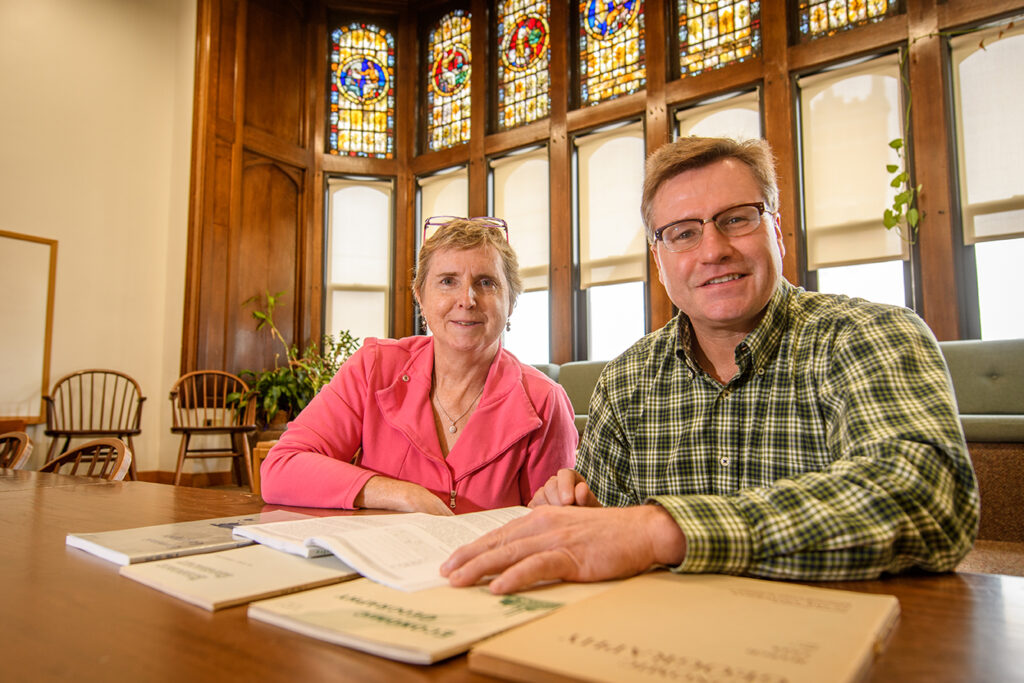Economic Geography ranks second in global scientific citation impact report

Economic Geography, the journal owned and operated by Clark University for nearly a century, is once again ranked at the very top with respect to its scholarly impact in the fields of geography and economics.
Clarivate Analytics, a data analytics company that provides a scientific citation indexing service, just released its 2020 Journal Impact Factor ratings as part of the 2021 update to its Journal Citation Reports that rank the prestige of peer-reviewed journals globally. Impact factor ratings measure how frequently recent works published in a journal are being referenced and influencing scholars around the world. The 2021 update shows that Economic Geography received its highest impact factor ever and that it is now ranked second out of 85 journals in geography and second out of 377 journals in economics globally.
“Our two-year impact factor is now 11.676, the highest ever,” says geography Professor Jim Murphy, the journal’s current editor-in-chief, adding that Economic Geography missed the top spot on the geography list by only .02. The 2020 citation impact factor is the average frequency in which papers published in 2019 and 2020 have already been cited in other peer-reviewed journals. “This is, of course, only a partial indicator of impact and significance, but it does tell us that the journal plays a leading, global role in guiding and shaping contemporary scholarship in the fields of geography and economics, and beyond,” Murphy says.
Founded in 1925 by then-Clark University President Wallace Atwood, who had founded the Graduate School of Geography in 1921, Economic Geography publishes five issues a year. The impact factor reflects the publication’s output and the wide range of scholars citing its articles.
“Economic Geography publishes only the highest quality, leading-edge papers after they go through multiple rounds of peer review, revision, and editorial guidance,” Murphy says. “These works push theoretical boundaries, develop and integrate new concepts into geographical frameworks, and innovatively advance our understandings of pressing issues facing the world today, such as inequality, the economic implications of climate change, and the impacts of global crises (e.g., COVID 19) on regional development.
“The journal’s publications are referenced not just by geographers, but by a wide range of scholars and policymakers. That’s why we’ve seen such an incredible, continued rise in our citation-impact factor.”
Beyond its scholarly reputation and impact, Economic Geography supports global initiatives in the field such as the Global Conference on Economic Geography and the Summer Institute in Economic Geography. This support has focused on providing funding for early-career scholars, particularly from the Global South, such that they can participate in these events and establish themselves as the next generation of economic geographers. “We’re very active in the global community of economic geography scholars, providing a forum for conversations and debates about where the field is going, and playing a leading role in advancing new research directions focused on pressing socioeconomic concerns,” Murphy says.
Assisting Murphy in reviewing the more than 200 articles submitted annually are editors Jane Pollard of Newcastle University; Andrés Rodriguez-Pose of the London School of Economics; and Henry Wai-chung Yeung of the National University of Singapore. Managing editor Hilary Laraba is based at Clark, and the journal’s revenue funds two doctoral-student stipends annually, one of which supports research in the field of economic geography. A 29-member international editorial board made up of top scholars in the field, including Clark Associate Provost and Dean for Research, Yuko Aoyama, provides strategic guidance for the journal and contributes articles and article reviews from all around the world. Since 2014, the journal has partnered with the academic publisher Taylor & Francis, which provides production services, website management, and global marketing support (read the current issue).
“I continue to see extremely positive trends in the quality, substance, innovativeness, and diversity of what is submitted to, and published in, the journal,” Murphy says. “It is truly compelling research on a wide range of topics, concepts, and places — works that address global issues and inform scholars within and outside the field of geography, as indicated by our ranking in economics. We have also made tremendous progress in terms of the gender balance of our contributors and published papers with lead authorship now approaching a 50-50 balance between men and women.”


